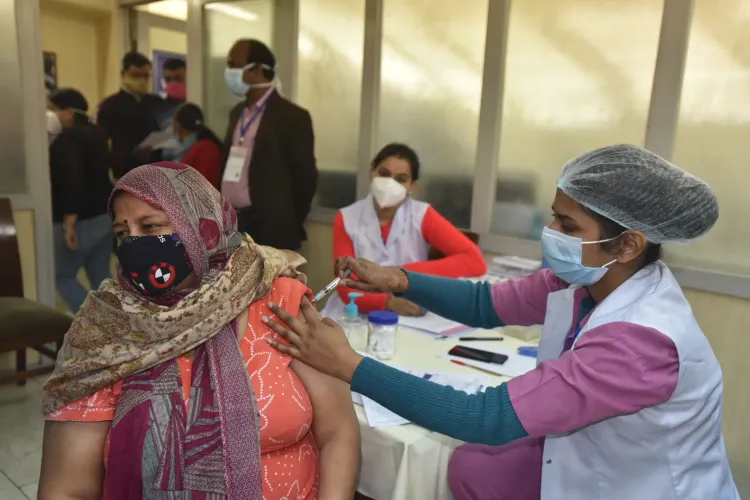Did Women’s Health Suffer More Than Men’s During the Covid Pandemic?

Synopsis
Key Takeaways
- Women experienced greater psychological distress during the Covid-19 pandemic compared to men.
- The connection between health behaviors and mental health weakened for women.
- Men showed a stronger protective effect from health behaviors during the pandemic.
- The negative impacts on women's health behaviors continued through May 2023.
- Targeted interventions are needed for women facing socio-economic challenges.
New Delhi, July 5 (NationPress) A study reveals that women's mental and physical health was impacted more severely than that of men during the devastating Covid-19 pandemic. This research, featured in the journal Social Science and Medicine, indicates that while both genders faced increased psychological distress, the rise was notably more pronounced in women.
The findings suggest that the connection between health behaviors and mental well-being weakened for women during the pandemic, meaning that leading a healthy lifestyle no longer significantly correlated with improved mental health for them.
Conversely, this relationship remained stable for men. Prior to the pandemic, healthy behaviors offered substantial protective benefits for women's mental health; however, during the pandemic, this protective effect intensified for men, according to researchers from the University of Aberdeen in Scotland.
“Our research indicates that women reported a decline in overall health behaviors compared to men during the pandemic. Notably, women consumed fewer fruits and showed smaller reductions in alcohol intake. Psychological distress surged for both genders, but the increase was more significant among women,” stated Professor Paul McNamee, who headed the research at the University of Aberdeen.
To assess the differing impacts of the pandemic on health behaviors across genders, the team analyzed national data spanning from January 2015 to March 2023, comparing pre- and post-pandemic results.
The analysis revealed that women experienced more detrimental effects from the pandemic than men.
“The negative shifts in women's health behaviors compared to men continued through May 2023, indicating potential long-term effects exacerbated by financial pressures during this period. Continuous monitoring of these trends is crucial,” remarked Dr. Karen Arulsamy from Duke-NUS Medical School in Singapore, who contributed to the study.
The research advocates for targeted interventions, especially since women from lower socio-economic backgrounds with caregiving responsibilities face greater challenges in maintaining social engagement and adopting healthier habits during heightened stress.










